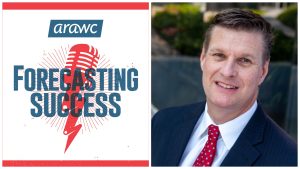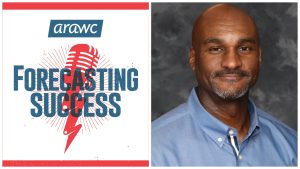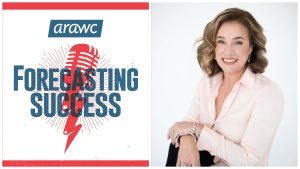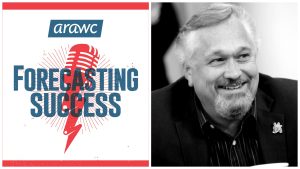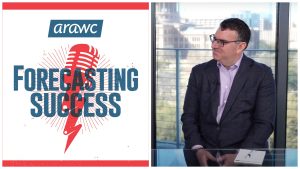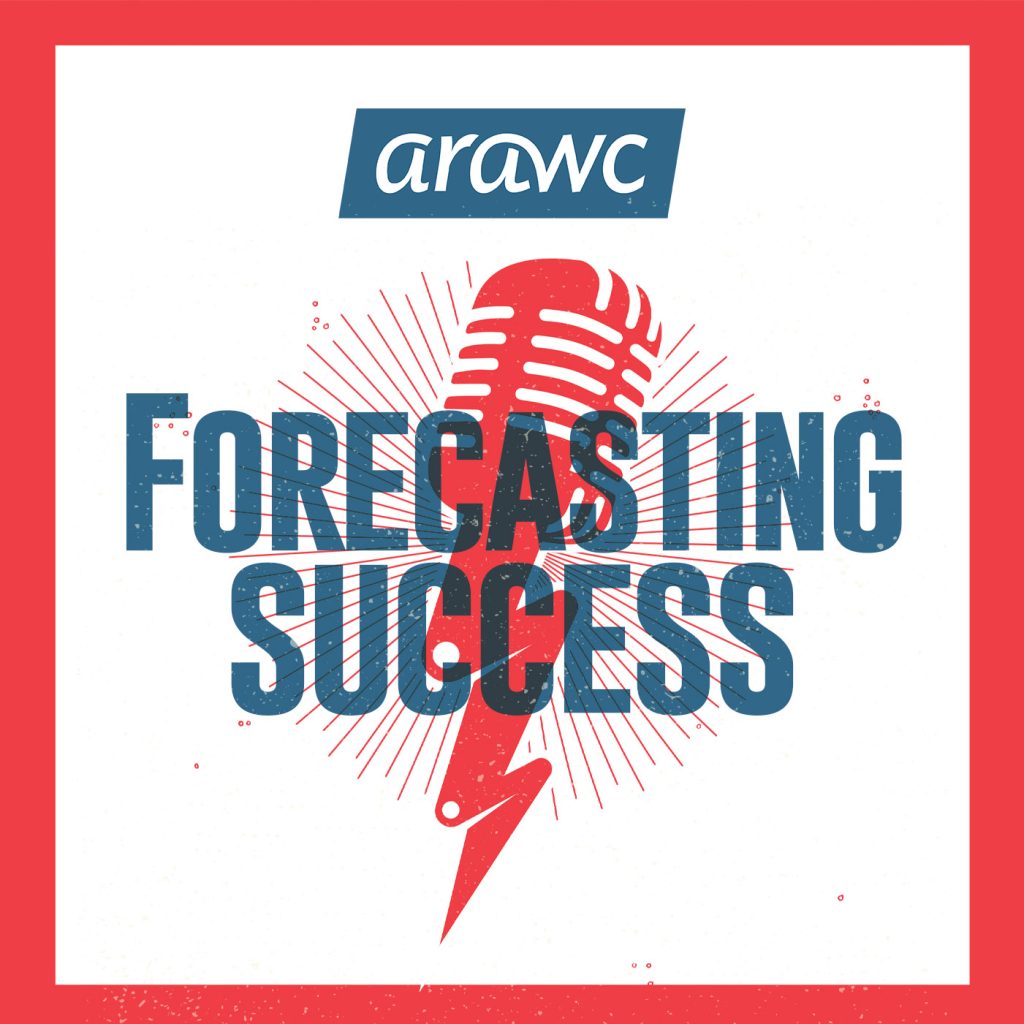Watch Now:
Welcome to another insightful episode of Forecasting Success, your go-to podcast for everything related to risk management, employee benefits, and the evolving world of non-subscription insurance! In this episode, host Ryan Brannan sits down with Joe Zopolsky, attorney with Glast, Phillips, and Murray, to delve into the complexities and innovations within the Texas non-subscription insurance space.
With decades of experience under his belt, Joe brings a treasure trove of knowledge and insights to the table. From his early days as a law clerk to his robust practice today, Joe’s journey through the realms of insurance defense and non-subscription plans has been nothing short of remarkable. Join us as we chart the past, present, and future of non-subscription insurance, exploring the nitty-gritty of plan management, litigation, and the undeniable importance of solid relationships and education in the industry.
Whether you’re a risk manager, an insurance professional, or just someone intrigued by the intricacies of the non-subscription world, this episode promises valuable takeaways and thought-provoking discussions. Tune in to learn about the pivotal role of technology, the challenges and opportunities ahead.
Transcript
Ryan Brannan (00:00:07) Hello again and welcome to another episode of Forecasting Success. I am your host, Ryan Brannon, and it is great to be with you again today. As you know by now, we talk about risk management, employee benefits, everything in the ecosphere of non subscription insurance, and innovative ideas. Looking forward to what we can expect and see in the future. Today I am with Joe Zopolsky, who is a partner at Glass, Phillips and Murray. He is based in the Dallas office. And just want to say welcome, Joe.
Joe Zopolsky (00:00:47) Thank you very much, Ryan. Appreciate it. We appreciate the invitation and allowing us to spend time with you today.
Ryan Brannan (00:00:53) Yeah, happy to do it. Before we really kick it off, you’ll see he’s doing the new member spotlight as well. And so I’m excited to announce, or at least back up the announcement that Joe Zopolsky and his firm have joined ARAWC. And I think it’ll be a great benefit for both groups, the association as a whole, and for Joe and Glass, Phillips and Murray. And we’ll get into why I think that here in just a little bit. But before we get to the current, I want to just start off with the past. I’ve known Joe for a long, long time. I won’t age either of us. But he initially offered to help me tweak my resumes back when I was in college, I think. So it’s been a long time, and obviously it’s been a minute since I’ve been in college. You just have to look at the top of my head to know that. But anyway, Joe, why don’t you kind of just talk about your background and we’ll just go from there, talk about how you got started in your business, and I’ll let you take it away.
Joe Zopolsky (00:02:01) Well, thanks very much. I guess, unfortunately, like you said, I’m not a spring chicken anymore, and I just turned 50, which is still bothering me.
Ryan Brannan (00:02:11) Happy birthday.
Joe Zopolsky (00:02:12) Thank you. I think that’s another lamenting for another day, but focusing on the reason why we’re here today. I did grow up in Dallas, and we ended up going to the same high school, although unfortunately, I was there many years before you. In terms of education, though, I went to college at Emory University in Atlanta and then worked my way back to Texas to go to law school at South Texas, did a year at SMU, and then ultimately to figure out how to run my firm. Well, after doing that for a couple years, I actually got my MBA at Texas Tech on the weekends. So just in terms of educational background, we’re there now. In terms of the space, my first year of law school which now was 26 years ago. I actually clerked for a law firm called Dodge, Fasio, Anderson and Jones, which since has been through several iterations. And I not sure where I think there’s two iterations currently of those folks, but relative to me, I still feel young. So in 98, I was working with, specifically Mike Dodge and Jerry Fasio, who are really pioneers in the space way back when. I mean, Mike on the plan side, running plans through the legislature, interfacing with brokers, educating businessmen and the brokers, and then ultimately on the sales side. So he really helped put the plan together. So the plans together in their current configuration is the way I would characterize it now on the claims defense side and the litigation side, that’s where Jerry came in. I learned a lot from him on that front. And really, if you kind of look at it through kind of the next generation, my plan today, in terms of continuing to service clients and a lot of the same clients that Mike has had going back decades, since Mike has retired, we now have at my firm, David Dodge, who’s Mike’s nephew, doing a lot of the plan work. And then I do a lot of the litigation work like Jerry. So it’s something that I learned about way back then. I saw everything from the inceptions of the plan to settling the ugliest claims from the time that I was, whatever it was, 20 some OD years ago. And so it is an esoteric process. Not everybody understands it, but I didn’t realize the details, how important it is, and frankly, how interesting it is. Certainly didn’t realize that 26 years later I would be doing it to such an in depth level that somebody would be asking me about it.
Ryan Brannan (00:04:45) Yeah, well, and here we are. You finally made it. You made it on the Forecasting Success podcast. Congratulations on the 26 year journey to get here. Seriously? Obviously, I’m kidding, but seriously. So when you left law school, was that the first place you started at the iterations of this firm, or how did you get there? And how did you get into the insurance comp, non subscription space?
Joe Zopolsky (00:05:12) So, yes, I was actually during law school. That was my first job. And so, yes, during the summer, I worked full time. And I remember when I first went in at the time, there were red wells for each client that they had with the plans in them. It’s a little bit different now, but it was rows and rows and rows of these on file shelves, and it got my attention. I thought it was very cool. So that was my first integration. And then as you go through law school, really, you’re looking for a job, and it’s sort of like, is it something that you and I would have thought when we started college, we’re going to do something in insurance? Probably not going through our minds, but as we delved in and learned more and more about this specific space, it’s something that I’ve found greatly interesting. And then the first job I had was a mixture of insurance, defense work, and a little bit of a dabble into the non subspace. But again, it’s just like, what kind of job can you get? And I feel lucky that I fell into a job that involves this work.
Ryan Brannan (00:06:15) I’d say after 26 years, you obviously love what you do.
Joe Zopolsky (00:06:19) Believe it or not, I like my job. I feel very lucky because not everybody is able to say that, well, I.
Ryan Brannan (00:06:26) Mean, that’s a very good point. And when you’re a kid, you never say, I want to grow up and be an intern for you. I sort of did. I may be kind of the OD man out on that. So my father was attorney, my mother was a physician. So I decided I was going to be the cool kid at Christmas and be an attorney that represents physicians and did medical malpractice. Right. As the Texas legislature passed medical malpractice reform, and all of the big law firms were spinning off those shops. And so even though I wanted to be an insurance lawyer, granted more on the health side, it turns out that the governor needed somebody to say, if you can’t beat them, join them. And so I moved down to Austin and worked for. So it’s kind of iterations of it, but I’ve grown to love what I do. And so then, working for him, he appointed me to be commissioner, and the rest is history. That’s how I got to here.
Joe Zopolsky (00:07:30) That’s really interesting, because you and I have known each other for a day, and I didn’t realize that. So I grew up in a house of a doctor and a nurse, and so I spoke med Mal from the day off. Now, it was 2001, and so I had two years, and half of my practice was med Mal as well, which is obviously watching the insurance stuff. But you and I could go in speaking the language a little bit on a higher level. And then I actually taught high school for two years. And so another piece of the practice of, it’s a firm that’s now joined with Wills Nelzer, which is a respectable insurance defense firm. It was called Hensley Fowler, Hepworth Schwartz, and Susan Schwartz is a big piece of wills now. So the getting the foot in the door. I guess we were talking about, you’ve got the insurance law, the medmal before it got out, legislated, slated, and then a tiny piece of the non sub, which you got one dying off and then really expanded on those other two. I didn’t realize that.
Ryan Brannan (00:08:18) Yeah, that’s funny. I also didn’t know you get your mb on the weekends. I got mine at night. Even after all these years, we could still surprise each other here.
Joe Zopolsky (00:08:27) Hopefully the listeners find that half as interesting as we do.
Ryan Brannan (00:08:30) Well, if not, we’ll edit it out, but I think they will. I think people like learning a little bit about the backgrounds and origin stories, if you will. And those are both good ones. So you’ve had, after 26 years of experience and learning under some of the original people that kind of built out this non subscription space, what are some of the lessons that you’ve learned that you think that you bring to the table?
Joe Zopolsky (00:08:56) So that’s a really good question. And I would point to two things. One of them is the technical side, the folks in the firm who deal with updating the plans and staying current on the law, and all of the pieces on the front end, if you will, dealing with the day to day. That is something that to me is very interesting and it’s something that we offer. The second part of what we offer is the claims defense and the litigation work, which is what we do. And it is nuanced. It’s a very esoteric part of defending claims. We have more ces than I can count on explaining to claims professionals and cles to lawyers about the idiosyncratic nature of defending claims in the non subspace. So I would say in terms of the front end and the back end work, if you will, that’s something that we distinguish ourselves on. It’s certainly the education piece that goes along with that. The thing that I like is speaking to the clients about why. Why is it that we should do this? Why is it that we should consider a non subscription plan? And to me, over time, and this doesn’t have to do with any kind of technical expertise like perhaps some of the other work does, but being able to look over time and see how the implementation of a plan affects a company and identifying different spaces where a plan can really benefit employer and employer, and you can see the metrics on economics, on really what this means in terms of save premium, in terms of back end legal spend. And so how does that impact the balance sheets of our clients? And it’s being able to speak about that basically through osmosis and watching all of these things happen over the years. So that’s really interesting to me in being able to describe what this means in terms of corporate America in addition to the technical underlying components of a non subscription plan.
Ryan Brannan (00:11:06) I love that answer and I love that perspective. We’ve had risk managers, people who have been both in the comp system and outside of the comp system for many years, come on here and talk on this podcast about the value of understanding what’s going on, not just for you, but for the worker that’s injured and making sure that they get taken care of. And the stories that we hear are that these risk managers at these companies are actually more in tune with explaining what’s going on and in the process and staying step by step to avoid having to go to litigation. But if they do, getting your back end perspective, also saying that it is very valuable to explain what’s going on in the process and where we are is something you don’t always see in the workers comp space. You really don’t. You see it a lot, and you hear about it a lot in the non sub world, but what a great insight.
Joe Zopolsky (00:12:07) Well, it’s interesting because something that I never envisioned happening, it’s probably because I’ve been around the block a few times, but we actually get invitations from different companies that offer non subscription products to actually get on planes and fly across the country and sit down and explain to them, in addition to the nuts and bolts of a plan, what does this translate to in terms of litigation on the back end? And the numbers are fascinating, and I’m honored and flattered that they would bring me on a client pitch. But also it really is interesting because a lot of the benefit to having a plan is really legal spend savings in addition to, frankly, what I consider fairness and transparency and black and white ramifications for workplace injuries. And there’s just a lot of different things there. Why? I think that the plans are quite fair, and I guess the final piece is as a litigator and particularly on the insurance docket that we carry, which is broad in scope. The thing that I really like in having, which happens most of the time in a very controlled arbitration setting, is you’re not subject to litigating a case in a very non favorable venue, and you’re looking at a case that perhaps has $50,000 worth of damages, but you’re looking at exposure into the hundreds and hundreds of thousands just because you happen to be in a courthouse of a particular demographic group or socioeconomic group or geographical group, where the trends show that jury verdicts are multiples and instead we have an arbitrator and it’s fairly adjudicated and sometimes things don’t go well. But the likelihood of a nuclear verdict, which frankly is scary for companies, it’s scary for the insurers, which increases their premium. It’s just a cost control measure, frankly, in the interests of underlying fairness, which is why I believe in the product.
Ryan Brannan (00:14:21) I’m glad you mentioned that. In fact, going back to the risk managers and previous guests, I made a comment during one episode that because of the arbitration and the way that these plans are structured, a lot of the times, and of course not every plan is the same, but I said, and this is just the former commissioner, inside the workers comp system perspective from what you hear from outside, is that you essentially take away the risk of a big claim. But I was told that is exactly incorrect, that the reason we go through a lot of this, aside from making sure that the injured employee gets the care that they need and understands what’s going through the process, which as an aside is a big assurance for the injured worker as their ability to know that they’re getting taken care of and therefore not wanting to go litigate. But also you see fewer problems in the non subscription space due to the fact that there is a concern about potential blow up results and wanting to make sure that you get all of that buttoned up and that you have a good solid plan with good attorneys and just trying to make sure you get through the arbitration process when that does happen. Just really good stuff. Switching gears just a little bit. You mentioned redwells when you first started, and how tech is kind of moving the industry, moving the different things that you could do. And it made me randomly think of an article that I was reading the other day where it was from the early said, our job is very difficult, but computers are on the way and they’re going to make it a lot easier. And I thought was that only 20 years ago that computers were on the way. So when you stop and think about it, the technology change is occurring frequently. Right now we’re at AI, we have all these other tools and everything at our disposal. Do you see the tech having an impact on this industry going forward? And I’m selfishly asking this question because we’re talking about Forecasting Success. So kind of in your crystal ball, do you have any concept of what tech might be able to do in this space or how it could be utilized?
Joe Zopolsky (00:16:49) What’s computer? So admittedly I am not the most tech forward person in the world, but there are a lot of really interesting educational courses and AI courses, which are both CE and CLE, which talk about cutting edge developments in that space. Now, in my litigation space, we have found things like forms, like research tools, they are fraught with some perils. And there was a federal court, I think I’m getting this right, a federal court admonishment of a lawyer who had used AI for his research, and he got a finger wag and said, now go back and judge this, go back and redo it. And I believe the story goes that the lawyer went back and redid it with AI again. And the reason they know is because it gives false cases don’t exist. Certainly the propositions of law that the cases are cited for are inconsistent. And that’s at best, now that’s sort of the worst case scenario. On a positive case scenario, we all, us litigators, grew up using O’Connor’s forms, which are tremendously helpful, and we use them to this day. And I think to the extent that safeguards can be put in place where AI is more of a supplement rather than a substitute for research, I think that that will be very helpful. Now, on the front end side, I have heard about underwriting, using AI as part of their process, but to me, that’s just more of what I don’t understand, and all of the different facts and figures and whatever other data they have that plugs into the formulaic analysis and spits out a premium amount. There’s certainly AI components which make that job easier for those professionals. But in terms of, at the end of the day, we’re looking at a document and we’re analyzing a document and making decisions on what the obligations of the employer are, what rights the employee has, and contract interpretations, which I don’t see being outsourced anytime soon to a computer or overseas or wherever else.
Ryan Brannan (00:19:19) Right. No, great points. And it made me also think, you’ve seen it creep into the property and casualty space. There’s companies out there like Hippo and lemonade that kind of use the technology to varying degrees of success. But I think you hit the nail on the head when you said using the tech as a tool rather than just relying on the tech. And that takes me back to the second thing. I wanted to circle back to that you mentioned earlier about education and how important education is. And it goes back to educating a worker and then educating everybody else through your ces and your cles. I think you even had me on one of your ces one time. Thank you for that invite. But that goes back to how far you come in 26 years, how great you’re doing in the space that you can turn around and put together all these ces and cles to educate other people. And I’m going to be coming to your ClE courses to make sure that I get my hours and also maybe to give you some capital fodder, because I know you like that.
Joe Zopolsky (00:20:23) It’s very interesting stuff. And I think that one of the things I enjoy about working together with you is everything that we do from the plan work all the way through litigation, all of the education is augmented by the behind the scenes work, if you will, with the legislator and with the other folks who work on the nuts and bolts level. To me, it’s all about education. And frankly, that’s why we’re so pleased to be part of ARAWC, is because the education and the collaboration piece has always been something that we’re passionate about. If nothing else, our bios have these long lists of ces and cles that we’ve done, and a good percentage of it specifically have to do with education on the non subspace. And so to learn that there’s industry professionals who do all kinds of different things and that we can share all of that and we can learn from other folks who bring a different perspective is something that is really what drew us to the organization in the first place.
Ryan Brannan (00:21:28) Yeah, and thank you for saying that. Anytime we can plug ARAWC on this podcast, I’m excited to do it. Did I mention they’re our title sponsor? You just touched on the CES Coes. Being able to educate in the space, and a lot of that’s a testament to your experience and your subject matter knowledge. I’ve worked with you for years now all the way back again to resume proofreading, to working on client stuff together. And every client that I’ve referred your way or prospective client your way, that turns into work, they have come back and said nothing but glowing things about the work that you’re doing. So thank you for making me look good on those regards as well. I appreciate that.
Joe Zopolsky (00:22:17) I appreciate it very much. And I guess something that I really want to emphasize is that our firm, I think we’re 53 strong last time I looked at it. We’re a full service firm. We’ve been around for 31 years, and we have lawyers in all spaces. Probably half of us are litigators, half of us are transactional, and it’s bumper to bumper based on what the need is. So it’s really fun to have that kind of background when it comes to the need to supplement a client’s representation with other areas. It’s not like to make calls to other law firms. You just go next door and knock on the guy’s door that’s been doing securities work for his entire career, whatever it might be, or if it’s a probate thing where you’re talking about a deceased person and how all that looks in terms of standing of the different parties to assert claims, whatever it might be, the thing that we subscribe to overwhelmingly, more than anything, Orion goes back to the time when we went to lunch. I think it was in 2003, if I’m not mistaken, and I think it was at Buffalo wild wings. And that’s all I could afford at the time, but it was still really good. But everything we do, everything is relationships based. And I feel very lucky because we do have a robust enough practice to where we can choose our relationships very carefully and what we firmly believe in, from everything from meeting a new potential client to considering an organization to join, just like ARAWC. And the reason why we became interested in it, because of your endorsement, and I’ve heard about it for years, but you have people you trust, and it’s sort of a transitive property. Like, okay, I trust this person. They trust that person, and it’s a beautiful way to form relationships. But we even tell new clients, new colleagues, new people who perhaps seek collaboration or education. If you have a relationship with anybody, including us, and you don’t leave the meeting or the interface or the exchange feeling warm and fuzzy, like, that’s a good man, that’s a good woman, this person. I see eye to eye with them. I could communicate with them. To me, it’s not worth it. Life’s too short. There’s 15,000 lawyers in Dallas Fort Worth metroplex alone, for example. Not to mention down here, we have an office. I don’t know the figures in Austin, but there’s plenty of people around. There’s plenty of clients. Texas. We are so fortunate to be in a huge state with nice books of business that if it doesn’t feel right, don’t do it. Find another lawyer. So we’re big, big on relationships, and again, life’s too short. Just work with people that you like, because there’s plenty of people out there that are smart and intelligent and who do this work really well.
Ryan Brannan (00:25:01) That’s well said. That’s one of the reasons why I’m looking forward to working with you in this capacity. As well as the other capacities we’ve worked in over the years and continue to do so. Earlier, you just talked about the industry as a whole. I kind of asked you about tech and where that’s going. Just now. You sparked my interest, again in another line of questions, because you said that Texas, we’re very fortunate in that there’s a great business environment. There’s a lot of business here, a lot of attorneys, a lot of people that have opportunities. And so when you look at our industry in the non subscription world, where do you see that going? Do you see that staying stagnant, growing kind of. Just from your perspective and your experience and your education and knowledge, I’d be interested to hear your thoughts on where you see this industry going in the future.
Joe Zopolsky (00:25:57) So that is a great question, and I have great hope when it comes to this. And having watched over the years, we have a space which, frankly, was a bit closer to obscure than not many, many years ago, to something that is becoming more and more known, especially to the larger clients, larger corporations, like a lot of the folks that are probably participating and watching the podcast. But I still can very comfortably say that even mid sized businesses, even some larger businesses, perhaps they are more closely held or run by a smaller group of people. It’s still discouraging to me to learn how many people are not educated or even knowledgeable about the space. And my hope, and my expectation is that the trajectory of more and more people becoming educated and being poised to take advantage of non subscription plans, I hope that continues. And I don’t know how to make that happen. And that’s one of the reasons why I’m grateful that certain organizations exist to advance that education. But for the business community, for corporate America, for corporate Texas, I think that it is extraordinarily important for there to be an education and a learning about these possibilities. So although that’s my hope, and that’s my expectation, what I would like to see happen is that somehow that learning curve which is trajecting upwards, not just remains a linear growth, but rather turns into some kind of exponential growth. And so I would pose that as a challenge to anybody listening to anybody as part of the organization, including me and you. I try where I can, but it’s something that I think is critical to fully taking advantage of all of the benefits that the programs have to offer.
Ryan Brannan (00:28:04) Yeah, very well said. Just thinking about a phone call that I had yesterday in a completely unrelated environment, where they were talking about prices going up and trying to find innovative ways to create new product that they can use in the Texas market. And it made me think that that’s happening across the board. And we are very fortunate to be in a state like Texas where we have the opportunity to go outside of a state regulated, mandated plan. And you can build your own plans, you can get creative, you can come up with new solutions. And every now and then, when somebody comes up with a new solution, it changes the game. And you do see some of that exponential growth. And you also see it, we saw it in the 90s. We saw it about 15 years ago. When costs skyrocket, everybody gets creative. We had exponential growth in this industry. Costs go back down, it changes again. But that’s the beauty of the market that we have in Texas, and glad that you pointed that out so eloquently earlier. And so, Joe, it’s been a pleasure talking to you about this, because you’ve hit the nail on the head in several different things. Texas has a great market for innovation. It has a wonderful opportunity to build relationships. The market is dynamic and can grow. And when you have people like Joe that have all of the experience, all of the knowledge, and to the point where they can even educate others that get credit for it through state regulators and other groups like that, for example, the bar for us is really a value add. And I know that you can use that experience and expertise and background and subject matter knowledge to discuss further ways to work with and communicate with ARAWC members as we build those relationships. And so I, for 01:00 a.m. Extremely glad that you joined ARAWC, and I’m looking forward to helping you build the relationships as we advance in a rock together. And just last thing, Joe, thank you so much for being here. It’s been a pleasure knowing you for as long as I have and you helping me out when I was first getting started and working together with you. And I’m excited for this new endeavor. And I really appreciate you taking the time to be on the podcast with me this morning.
Joe Zopolsky (00:30:37) Well, very thankful again for the invitation. And certainly everything in relationships is a two way street. And I would say that what we’ve done over the past few years from the very beginning to now, that type of synergistic relationship, collaboration and mutually beneficial education, is something that we certainly hope to build among everybody else in the space for the type of collective goals that we’ve been talking about. It’s exciting space and certainly excited to participate in the conversation. So thank you.
Ryan Brannan (00:31:04) Yes, thank you. And thank you for everybody that’s watching. We are always very thankful to have you pay attention and listen in, and we hope that you enjoy the content. We look forward to making many more and having you join us. Thank you. And with that, have a good day.
Subscribe to Forecasting Success for more insightful discussions on risk management and the future of employee care. Share this episode with colleagues and don’t miss out on thought-provoking stories and strategies from leaders in the field!
Thanks for joining us, and we’ll see you in the next episode!

